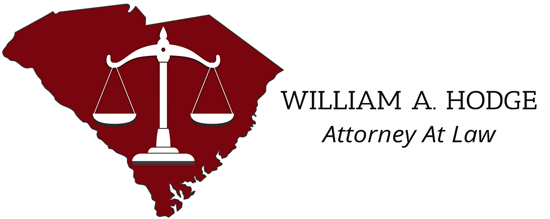WHAT HAPPENS AT A DUI ARRAIGNMENT HEARING?
Being arrested for a DUI in Columbia is no small charge. It is easily one of the most stressful events in a person’s lifetime. Understanding what happens after the initial arrest will help you be more prepared and less stressed about your future.
DUI ARRAIGNMENT HEARING
A man or woman is often “cited out” the day after their arrest. Being “cited out” means an individual is released from jail for a time. They will be provided with a Notice to Appear that states the day, time and location of their arraignment hearing from the law enforcement agency upon release. The date could be in just a few days after the initial arrest or even many months later. A defendant who is not cited out will be transported to their arraignment hearing within three business days time from their arrest. Most drivers charged with DUI in South Carolina have no experience with the legal system, and as a result, the arraignment hearing can be very intimidating.
ARRAIGNMENT HEARINGS FOR DUI
Arraignment hearings happen in several types of cases, not only in DUI cases. It is only the first appearance in a person’s criminal case. An arraignment hearing is where the court officially charges defendants of their crimes after seeing if there is enough evidence to attempt to charge them. The court also reminds the defendant that he or she has a right to a lawyer. From there the defendant will have to choose whether to plead guilty or not guilty.
The defendant will receive a copy of the criminal complaint as well as the initial discovery packet at the beginning of the arraignment hearing. In the case of a DUI, a copy of the arresting officer’s incident report, the result of any chemical testing, and a copy of the defendant’s criminal history and their driving record will all be included the initial discovery packet. The discovery file might be redacted if there is no lawyer present to represent the defendant. This is to remove all identifying information from witnesses and victims to ensure their safety.
BENEFITS OF HIRING AN ATTORNEY FOR A DUI CHARGE
The defendant may have his or her attorney appear in court on their behalf at an arraignment hearing for most DUI cases as well as other misdemeanors, meaning the defendant will not be required to show up to the arraignment hearing. A defendant without an attorney must appear in court personally and wait for their case to be called, which could take all day. If the defendant’s state considers a DUI as a felony instead of a misdemeanor, the defendant’s presence will be required and cannot send a lawyer in their place.
It is difficult to overstate the importance of choosing the best Columbia DUI attorney for your case. It is imperative to find and hire the best lawyer you can for your DUI case and that you do it as soon as possible. If a defendant has not obtained an attorney in time for the arraignment hearing, the court will provide the defendant with a few options. The defendant has the option to apply for a public defender if the defendant is found to be financially unable to hire a lawyer for themselves. At the discretion of the court, the defendant could choose to continue the arraignment hearing so that they can retain private counsel. The defendant’s last option is to attempt to defend his or herself, but due to the complexity and technicality of DUI cases that is not a recommended course of action. Most DUI cases will require a skilled attorney that knows how to defend in these types of cases.
HIRING AN ATTORNEY FOR A DUI
The prosecutor can make an offer to resolve the case during the arraignment hearing. It is possible that the defendant will want or feel the need to accept the offer given, but in the majority of cases the defense enters a not guilty plea, and the case will continue. From there a pretrial hearing is scheduled. It is between the arraignment hearing and the pretrial hearing that your attorney will have time to examine the evidence surrounding the case. There are many different things that they can analyze that can help exonerate a defendant. Things such as police dash cam videos, breathalyzer calibration and maintenance records, and even audio recordings from the night of the arrest can all prove helpful.
A judge can also set bail to ensure their return of the defendant if it feels the need to, as well as set the conditions of “O.R.”. These conditions can include things such as mandatory AA attendance, or that the defendant must wear an alcohol monitoring bracelet for the duration of the case.
